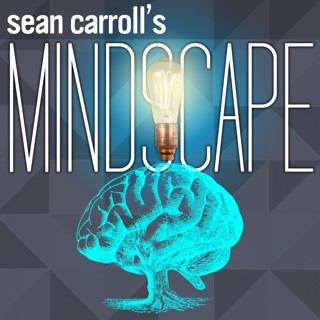
AMA | August 2024
Welcome to the August 2024 Ask Me Anything episode of Mindscape! These monthly excursions are funded by Patreon supporters (who are also the ones asking the questions). We take questions asked by Patr...
5 Elo 20243h 37min

284 | Doris Tsao on How the Brain Turns Vision Into the World
The human brain does a pretty amazing job of taking in a huge amount of data from multiple sensory modalities -- vision, hearing, smell, etc. -- and constructing a coherent picture of the world, const...
29 Heinä 20241h 2min

283 | Daron Acemoglu on Technology, Inequality, and Power
Change is scary. But sometimes it can all work out for the best. There's no guarantee of that, however, even when the change in question involves the introduction of a powerful new technology. Today's...
22 Heinä 20241h 17min

282 | Joel David Hamkins on Puzzles of Reality and Infinity
The philosophy of mathematics would be so much easier if it weren't for infinity. The concept seems natural, but taking it seriously opens the door to counterintuitive results. As mathematician and ph...
15 Heinä 20241h 18min

Ask Me Anything | July 2024
Welcome to the July 2024 Ask Me Anything episode of Mindscape! These monthly excursions are funded by Patreon supporters (who are also the ones asking the questions). We take questions asked by Patreo...
8 Heinä 20243h 21min

281 | Samir Okasha on the Philosophy of Agency and Evolution
Just like with physics, in biology it is perfectly possible to do most respectable work without thinking much about philosophy, but there are unmistakably foundational questions where philosophy becom...
1 Heinä 20241h 11min

280 | François Chollet on Deep Learning and the Meaning of Intelligence
Which is more intelligent, ChatGPT or a 3-year old? Of course this depends on what we mean by "intelligence." A modern LLM is certainly able to answer all sorts of questions that require knowledge far...
24 Kesä 20241h 41min

279 | Ellen Langer on Mindfulness and the Body
For those of us who are not dualists, the mind arises from our physical bodies -- mostly the brain, but the rest of the body has a role to play. And yet it remains tempting to treat the mind as a thin...
17 Kesä 20241h 11min















